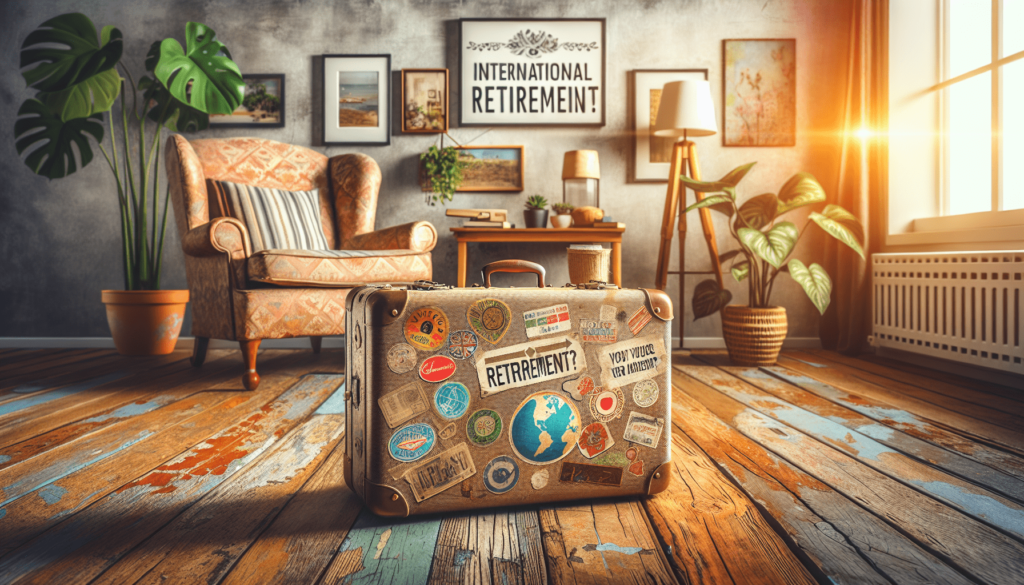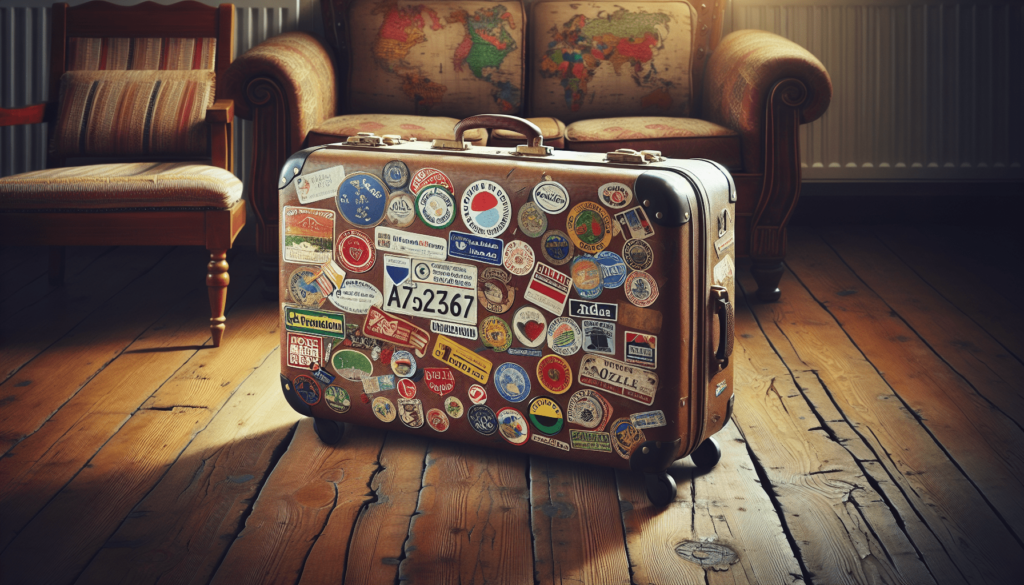Retiring abroad can be an exciting adventure, opening doors to new experiences and a different way of life. However, it also means embracing a wave of cultural adjustments that may initially seem challenging. In exploring “What Cultural Adjustments Should I Be Prepared For When Retiring Abroad?” you’ll learn about the diverse social norms, etiquette, and daily habits you’ll encounter as you settle into your new home. This article will guide you through these cultural intricacies, helping you to smoothly transition and fully enjoy your retirement in a foreign land.
What Cultural Adjustments Should I Be Prepared For When Retiring Abroad?
Are you thinking about retiring abroad? The idea of living in a beautiful, foreign country with new experiences and adventures is certainly enticing! But it’s important to remember that moving abroad isn’t just about enjoying the beautiful scenery and a lower cost of living—you will also need to adapt to a different culture.
In this article, we’ll explore what cultural adjustments you should be prepared for when retiring abroad. By understanding these nuances, you can make your transition smoother and your retirement more enjoyable.
Check out our recommended retirement gifts!
Understanding The Local Culture
When considering a move to a different country, understanding the local culture is crucial. Culture encompasses the attitudes, customs, and beliefs that define a group of people, and it will influence nearly every aspect of your daily life.
Social Etiquette and Norms
One of the first things you’ll need to adjust to is the social etiquette and norms of your new country. What might be considered polite or rude in your home country could be entirely different abroad.
For instance:
- In Japan, it’s customary to bow as a greeting, and wearing shoes indoors is considered impolite.
- In Italy, it’s normal to greet people with a kiss on both cheeks.
- In India, showing the soles of your feet is considered disrespectful.
These small customs can mean a lot in social interactions. Always take the time to learn these norms to avoid unintentional faux pas.
Communication Styles
Communication styles can differ significantly from one culture to another. Some cultures are more direct, while others value indirect communication and subtlety.
| Country | Communication Style | Notes |
|---|---|---|
| United States | Direct | Values straightforwardness |
| Japan | Indirect | Values subtlety and context |
| Germany | Very Direct | Appreciates blunt honesty |
| Brazil | Expressive | Relies on facial expressions |
Understanding these differences can help you navigate conversations more comfortably and effectively.
Language Barriers
Language is an integral part of communication, and retiring to a country where you don’t speak the language can present challenges. Consider taking language lessons before you move and continue practicing once you’re there. Even basic proficiency can make a significant difference in your daily interactions.
Non-Verbal Communication
Non-verbal communication, such as gestures, body language, and eye contact, also varies across cultures. For example:
- In Thailand, touching someone’s head is considered very disrespectful.
- In many Middle Eastern countries, making direct eye contact might be seen as confrontational.
Learning these non-verbal cues can help you communicate more effectively and respectfully.
Daily Life Adjustments
Your daily life will also undergo many changes. From shopping to dining and working, each activity will have its own set of rules and customs.
Shopping and Bargaining
Shopping practices can be drastically different depending on where you are:
- In Western countries, prices are usually fixed.
- In markets in Southeast Asia, bargaining is expected and can be an enjoyable activity.
Knowing whether or not you should negotiate prices, and how to do so politely, can help you integrate more smoothly.
Dining Etiquette
Dining habits vary widely and can offer a fascinating glimpse into a culture. Here are a few examples:
- In China, it’s customary to serve your guests before yourself.
- In Ethiopia, meals are often communal, and people eat with their hands.
- In France, leisure and savoring the meal is important, so meals can be longer and more relaxed.
Understanding these dining customs will make your experiences much more pleasant.
Healthcare Systems
Healthcare systems vary greatly around the world. Some countries provide universal healthcare, while others rely more on private systems. Familiarize yourself with how healthcare works in your chosen country and consider getting health insurance that suits your needs.
Public Transportation
Public transportation could also be different.
- In Japan, trains are known for their punctuality and cleanliness.
- In many parts of Latin America, buses might not always run on a strict schedule but offer a more casual way to travel.
Getting used to these systems early on will help make your daily commuting stress-free.

Check out our recommended retirement gifts!
Legal and Financial Considerations
When retiring abroad, it’s also important to consider legal and financial matters that will impact your life.
Understanding Visas and Residency Permits
Each country has its own set of rules regarding visas and residency permits for retirees. Make sure to research what is required and have all your paperwork in order before making the move.
Banking and Taxes
Managing your finances in a new country can be tricky, especially when it comes to banking and taxes. Some countries have agreements with others to avoid double taxation, but it’s worth consulting a financial advisor to understand your obligations.
Property Laws
If you plan to buy property, be sure to understand the local laws related to property ownership as they can vary significantly:
- In some countries, foreigners can’t own land.
- In others, you might have to go through additional steps to purchase property.
Being well-informed here can prevent legal troubles down the line.
Building a Social Network
Creating a social network in a new country can greatly enhance your retirement experience. It provides emotional support and helps you feel more connected.
Making New Friends
Making friends might seem challenging, especially in a new country, but there are many ways to connect with locals and fellow expatriates:
- Join clubs or groups that interest you.
- Attend community events and festivals.
- Volunteer for causes you care about.
Navigating Different Social Systems
Social systems such as healthcare, education for any children you might have with you, and even the local club scene can be different. Understanding and integrating into these systems will enable you to establish your social circle more effectively.
Dealing with Loneliness
Loneliness can be a significant challenge when living abroad. Staying connected with friends and family from home through technology can mitigate feelings of isolation. Regularly setting up video calls or planning visits back can be very comforting.

Adapting to Climate and Geography
The climate and geography of your chosen retirement destination will also require some adaptation. It’s not just about enjoying sunny beaches—you’ll need to adjust your lifestyle to fit the environment.
Understanding the Weather Patterns
Whether you’re moving to a tropical climate or a colder region, it’s crucial to understand the local weather patterns. This affects your clothing, activities, and even your health. Ensure you’re prepared:
- For warm regions, invest in lightweight clothing and cooling solutions.
- For colder regions, make sure you have the appropriate winter gear.
Natural Disasters
Some regions are more prone to natural disasters such as earthquakes, hurricanes, or monsoons. Familiarize yourself with local emergency procedures and have a plan in place.
Health Impacts
Different climates can have various effects on your health. Adjusting your routine to adapt to higher altitudes, humidity levels, or seasonal changes will help you stay healthy.
Learning New Traditions and Holidays
Part of your cultural adaptation will involve learning about and participating in new celebrations and traditions.
Local Festivals and Holidays
Each country has its own set of important holidays and festivals. These can offer fantastic opportunities to immerse yourself in local culture:
- In India, Diwali is a major festival celebrating the victory of light over darkness.
- In Mexico, the Day of the Dead honors deceased ancestors with vibrant celebrations.
- In Spain, La Tomatina is a fun, chaotic tomato-throwing festival.
Participating in these events can enrich your cultural understanding and help you feel more integrated into your new community.
Religious Practices
Religion can play a significant role in daily life and social norms in many countries. Understanding and respecting local religious practices will help you fit in better and avoid misunderstandings.
Maintaining Your Identity While Being Open-Minded
Finally, while it’s critical to adapt to your new culture, it’s equally important to maintain your own identity. Balancing these elements can create a fulfilling expatriate life.
Balancing Adaptation and Identity
While it’s essential to adapt, you don’t need to lose who you are. Finding a balance between acceptance of the new culture and retaining your own traditions can create a fulfilling, harmonious life.
Staying True to Your Values
Sometimes, the local values may not align perfectly with your own. It’s okay to respectfully stick to your personal stance on certain issues as long as it doesn’t harm your relationship with the locals.
Conclusion
Retiring abroad is an exciting, life-changing decision that offers new adventures, experiences, and a fresh perspective. However, it’s not without its challenges. By preparing for these cultural adjustments, understanding legal and financial implications, and being open to new social networks, you can make your transition smoother and more enjoyable. Keep an open mind, embrace the new culture, and don’t forget to respect and incorporate the local customs into your life.
Happy retirement and safe travels!



